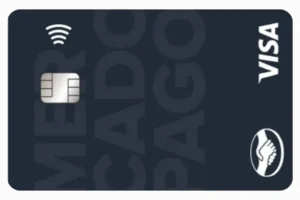CHOOSE YOUR TYPE OF CARD
Explore the advantages of credit cards that offer zero annual fee, easy approval, cashback and options for people with credit cards.
Adverts
These benefits are ideal for those looking for savings, practicality and financial inclusion. Check out the details of each type of card below and find out which one best suits your profile.
Choose a type:
Disclaimer: You will continue on this site
Cards without annual fees: guaranteed savings
Cards with no annual fee eliminate fixed annual costs, giving you more financial freedom and access to exclusive benefits.
What is Zero Annuity?
The annual fee is an annual charge levied by banks to maintain the card. With cards with no annual fee, this cost is eliminated, making them more affordable. Examples include Nubank, Inter Bank e Neon.
Advantages of Choosing a Card with No Annual Fee
- EconomyWithout the annual fee, there's more left over in the budget.
- Extra BenefitsMany cards offer cashback and rewards programmes, even without annual fees.
- Practicality: Modern apps help with financial control.
Tips for making the most of it
- Pay your bill on time to avoid interest.
- Use the associated benefits, such as cashback and exclusive discounts.
Cards with Easy Approval: less bureaucracy
Ideal for those looking for fast credit, these cards have simplified processes and flexible eligibility criteria.
How do they work?
These cards dispense with high credit scores and require fewer documents, making them perfect for informal workers or people with limited financial history.
Reasons to choose
- Less Bureaucracy: Fast and uncomplicated approval processes.
- AccessibilityPractical solution for those who need immediate credit.
- Inclusion: Options available even for those with a negative credit rating under certain conditions.
Tips for Approval
- Keep your accounts up to date to improve your score.
- Consider prepaid cards to build financial history.
Cash back cards: money back
Turn part of your purchases into real savings with cards that offer cashback.
How does cashback work?
A percentage of the amount spent is returned to the customer as a credit that can be written off, transferred to their account or used for future purchases.
Benefits of Choosing a Cashback Card
- Direct Savings: Receive a share of what you spend.
- Flexibility: Use the credits as you wish.
- Smart Consumption: Maximise your return with conscious spending.
Tips for Maximising Cashback
- Concentrate your spending on categories that offer the greatest return.
- Take advantage of seasonal promotions to increase your earnings.
Cards for the Negative: Inclusion and Accessibility
These cards are designed for those facing financial difficulties, offering alternatives such as payroll and prepaid cards.
How do they work?
Even if your name is restricted, you can access credit through options with more flexible criteria.
Why Choose a Card for the Negative?
- Financial Inclusion: Helps with credit recovery.
- Control: Prepaid cards prevent excessive debt.
- Flexibility: Allows online purchases and instalments.
Tips for Improving Your Financial Situation
- Use prepaid cards to create a positive track record.
- Pay your bills on time to increase your credit score.
Which benefit is best for you?
Each type of card fulfils different needs. Choose the one that best suits your profile:
- Want to save money? Opt for cards with no annual fee.
- Looking for fast credit? Cards that are easy to approve are ideal.
- Want direct benefits? Opt for cards with cashback.
- Are you unemployed? Consider inclusive cards.
Compare your options and choose the card that best suits your financial situation. This way you can save money, organise your finances and achieve your goals with greater peace of mind!
Frequently Asked Questions (FAQ)
1. Are cards with no annual fee really free?
Yes, as long as you meet the conditions laid down, such as a minimum monthly spend in some cases. However, be aware of possible additional charges, such as withdrawal fees or interest for late payment.
2. Do credit cards have many disadvantages?
Although affordable, they generally have lower limits, higher rates and fewer benefits compared to traditional cards. However, they are a great alternative for those looking to rebuild their credit history.
3. Is it possible to have more than one credit card?
Yes, but it's essential to manage your limits and payments carefully. Having multiple cards can be advantageous for taking advantage of different benefits, but uncontrolled use can damage your credit score.
4. How do I set the ideal limit for my card?
The limit should be proportional to your monthly income. A common recommendation is that it should not exceed 30% of your income, helping to avoid excessive debt.
5. What precautions should I take when using credit cards?
Pay your bill on time to avoid interest.
Avoid revolving credit.
Keep your spending within plan.
Review your statements frequently to identify undue charges.
6. Is it safe to use credit cards for online purchases?
Yes, as long as you shop on trusted sites and use tools such as virtual cards. It's also important to regularly monitor your transactions to detect any suspicious activity.
7. Which card brand is best (Visa, Mastercard, etc.)?
That depends on your needs.
American Express e LinkThey offer specific advantages, such as extra points or travel discounts. Choose the card that best suits your profile and consumption habits.
Visa e Mastercard: Global acceptance and good benefits programmes.
How to improve your credit score in Brazil
Want to increase your chances of approval for top-level credit cards? Adopt these strategies to raise your credit score:
Pay your bills on time: punctual payment is essential for a good credit score. By paying your bills, such as cards, mortgages and invoices, on time, you demonstrate financial responsibility and build a positive track record.
Reduce credit card balancesThe main reason for this is that keeping the utilisation limit below 30% is a sign of financial control. Reducing your bill balance shows that you manage your finances well, which increases the confidence of financial institutions.
Keep old accounts activeThe length of your credit history directly influences your score. Keeping old accounts active helps to create a more consistent and reliable financial profile.
Diversify your credit portfolioHaving different types of credit, such as cards, loans and finance, can have a positive impact on your score. But remember: only take out new lines of credit if you really need to, to avoid unnecessary debt.
Avoid applying for too many credits in too short a timeEach credit application generates an enquiry into your CPF, which can temporarily lower your score. Plan your requests to avoid negative impacts on your score.
Review and correct data in your register: access your credit history regularly on platforms such as Serasa, SPC Brazil or Boa Vista SCPC. If you find errors or outdated information, please ask for it to be corrected in order to maintain the credibility of your profile.
Become an authorised user of another cardIf someone you trust has a card with a good history, ask to be added as an authorised user. This practice can help improve your score indirectly.
Bonus: Exclusive guide to improving your score
We are preparing a free guide with practical tips and strategies created by experts to raise your credit score.
What to expect in the guide?
- Exclusive insights.
- Useful tools for organising your finances.
- Strategies for a higher score.
Stay tuned for the launch! Your journey to better financial health and a higher credit score starts now. Don't miss out!
SEE ALSO:






